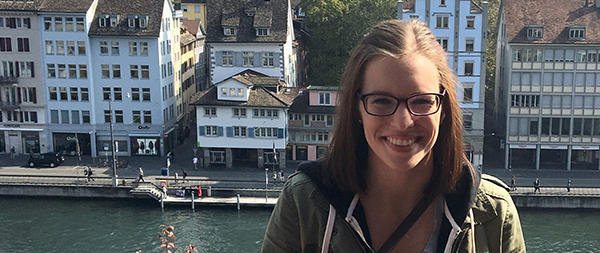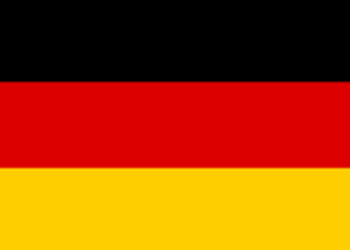During my senior year of high school, one of my teachers asked the class, “Where do you see yourselves in five years?” Many of my classmates planned to be finished with college and working at their first “real-world” job, but my vision was living in Germany.
My grandfather emigrated to the U.S. from Germany and I started learning the language because of him. During my junior year of high school, he became ill. I saw the German language as an opportunity to stay connected to him after his passing. That year, I participated in my high school’s exchange program and visited Germany for the first time, specifically Munich. At the end of the trip I was able to visit my German relatives, including my grandfather’s twin sister. I realized that I no longer had a dream job, rather a dream place of residence.
I was a freshman at Marquette in the Fall of 2016 and continued with my German studies, where I pursued it as a minor. The small class sizes gave me the opportunity to participate in thorough discussions with classmates and form friendships which made me look forward to my next day of class. I also was able to connect with my professors, and they assisted me with my study abroad application process through letters of recommendation as well as sharing their own experiences in Germany.
While my academic advisor advised me against an entire year abroad with the fear that I would not graduate on time, my German professors encouraged me. Once I was accepted to the program, I wanted to spend even more time in Germany. Many upperclassmen had told me about their semester study abroad experience, and how they wished they would have done an entire year as the time flies by. Marquette’s semester ended in May and the German semester began in October, and I decided to be an Au Pair in Kiel during this time, since I knew that even a year would be too short for me.
In October of my junior year of college, I was living as a student of the Ludwig-Maximlians-Universität, in my favorite city in Germany: Munich. During my study abroad year, I completed a certificate in Intercultural Communication through the university. I was able to strengthen my friendships from my high school exchange as well as make new friends. I wanted to make this place my home, and on my flight back to the U.S., I thought about ways to get back to Germany.
During my last year at Marquette, not only did I graduate on time, but I was able to upgrade my German minor to a major based on all the credits I had accumulated. I also completed a German Language exam in order to qualify for Master’s Programs taught in German.
Coming back to the question of where I saw myself in five years -- I would say that I was spot on. I am currently pursuing a Master’s Degree in Intercultural Communication and living in Munich. It’s safe to say that without German, I would not be where I am today.








